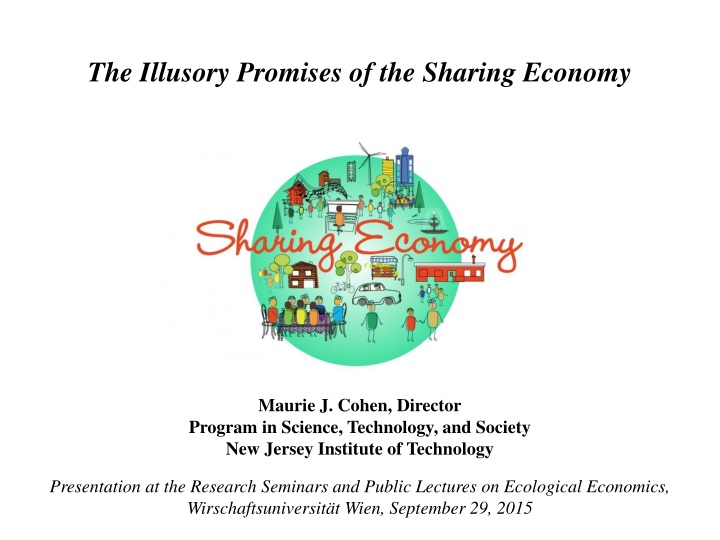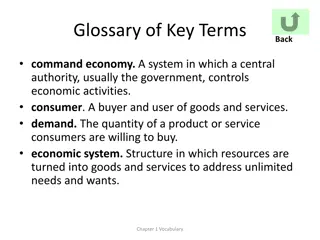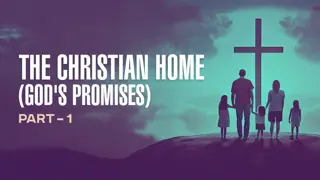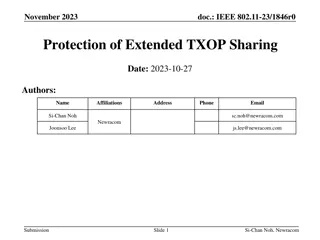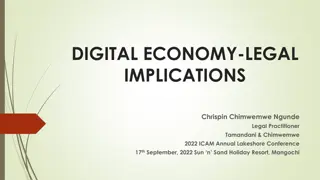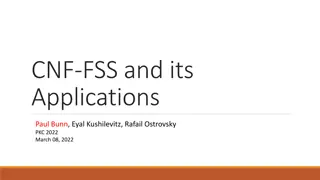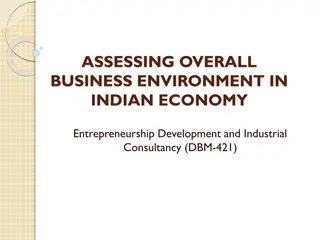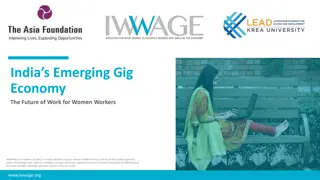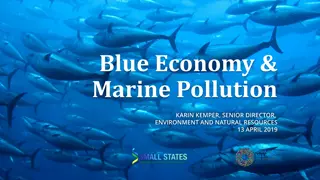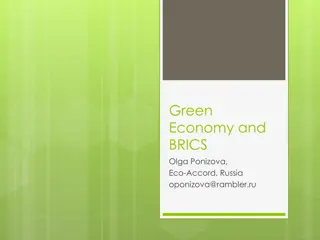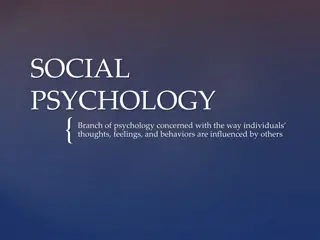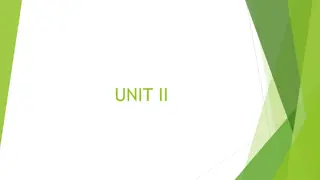The Illusory Promises of the Sharing Economy
Maurie J. Cohen, Director Program in Science, Technology, and Society at New Jersey Institute of Technology, discusses the deceptive nature of the sharing economy in a presentation at a research seminar. The presentation delves into the challenges and pitfalls of contemporary consumption and societal behaviors that belie the promises of the sharing economy. SCORAI, a sustainable consumption research initiative, and its recent activities are also highlighted in the discussion, shedding light on efforts to promote social change and sustainability. Various upcoming workshops, conferences, and publication projects are outlined, emphasizing the collective endeavor to transition toward a new economy that prioritizes sustainability over consumerism.
Download Presentation

Please find below an Image/Link to download the presentation.
The content on the website is provided AS IS for your information and personal use only. It may not be sold, licensed, or shared on other websites without obtaining consent from the author.If you encounter any issues during the download, it is possible that the publisher has removed the file from their server.
You are allowed to download the files provided on this website for personal or commercial use, subject to the condition that they are used lawfully. All files are the property of their respective owners.
The content on the website is provided AS IS for your information and personal use only. It may not be sold, licensed, or shared on other websites without obtaining consent from the author.
E N D
Presentation Transcript
The Illusory Promises of the Sharing Economy Maurie J. Cohen, Director Program in Science, Technology, and Society New Jersey Institute of Technology Presentation at the Research Seminars and Public Lectures on Ecological Economics, Wirschaftsuniversit t Wien, September 29, 2015
http://www.scorai.org Excerpt from mission statement: The Sustainable Consumption Research and Action Initiative (SCORAI) is an international knowledge network of professionals working at the interface of material consumption, human well-being, and technological and cultural change.
Consortium of SCORAI Networks SCORAI Europe SCORAI North America SCORAI China
Recent/Current SCORAINA Activities Convened last year a colloquium series on Consumption and Social Change that began in Spring 2014 and concludes next month. Colloquium series will conclude with a workshop in October 2015 reflecting on the span of presentations and seeking to formulate a state of the field on current understanding of opportunities for fostering social change beyond consumerism. Organizing a workshop on Sustainable Consumption and Cities in collaboration with the Urban Sustainability Directors Association in October 2015. Holding the Second International SCORAI Conference at the University of Maine in June 2016. Several publication projects moving toward completion including a co-edited book provisionally entitled Putting Sustainability into Practice: Applications and Advances in Practice Theories. Also launching a new book series with Routledge on Studies in Sustainable Consumption.
Sustainability: Science, Practice, Policy - The open access eJournal for sustainable solutions http://sspp.proquest.com
The Future of Consumer Society: Prospects for Sustainability in the New Economy
Can a Consumer Society Persist in the United States in the Face of a Shrinking Middle Class ?
And What Does the Future Hold in Terms of Household Provisioning Practices?
Consumer Society (n): a community in which the buying and selling of mass-produced goods and services is promoted through mass media and is the dominant economic activity.
A Longue Dure Perspective on Consumer Society Industrialism (1800-1945)Consumerism (1945-??) Agrarianism (pre-1800)
Should Not Overestimate the Novelty of Sharing Sharing as a provisioning strategy has been around for a long time and encouraged by friendly societies, mutual aid organizations, and fraternal groups.
Should Not Overestimate the Novelty of Sharing And especially among people on the economic margins due to poverty, sharing has been an essential economic survival strategy.
Should Not Overestimate the Novelty of Sharing Sharing both as a public service and a commercial activity has a long history.
Should Not Overestimate the Novelty of Sharing The trading of second-hand clothing was common during the 18th and 19th centuries, but lost favor due to public health concerns in the early years of the 20th century.
Should Not Overestimate the Novelty of Sharing As the consumer society developed during the 20th century, sharing as an institutionalized practice came to be deeply stigmatized.
